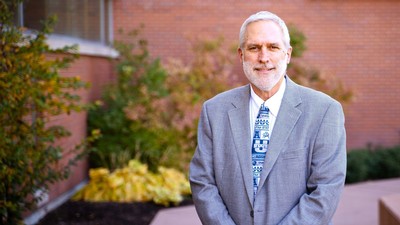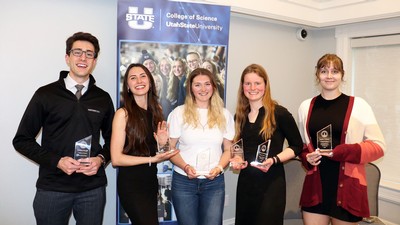Researchers of the 'Black Sheep' Family Dynamic Featured in "Forbes"
The ongoing research of Elizabeth Dorrance Hall and Kristina Scharp, assistant professors of Communication Studies, has been featured in a "Forbes" magazine article, “What It's Like to Be the Black Sheep of the Family.”
They’re “marginalized family members” to two USU researchers. The rest of us know them as the family’s “black sheep.”
It’s part of the dynamic and complicated family life that’s studied in the Family Communication and Relationships Lab -- along with that other character we’re all familiar with: the golden child.
Now those relationships are explored in an article titled “What It’s Like to Be the Black Sheep of the Family” that appeared May 7 in Forbes magazine. The article is based on the research of Kristina Scharp and Elizabeth Dorrance Hall, assistant professors of communication studies in the Department of Language, Philosophy and Communication Studies.
“I am excited to see our work in the popular press because marginalization and family estrangement are often traumatic, even if they are healthy solutions to unhealthy environments,” says Scharp.
Family estrangement, as she explains, is much like the black sheep phenomenon but with communications between the actors cut off for extended periods of time or in a “chronic, cyclical state of being on-again and off-again.”
Both situations, along with other family lifestyles, are the focus of research in the Family Communication and Relationships Lab, which is co-directed by Scharp and Dorrance Hall.
“To date, my research has focused on both the parents and children who are in the estrangement process,” said Scharp. “But I am starting new research aimed at understanding how other family members experience estrangement. I think it's important to recognize that everyone in the family is potentially suffering.”
LPCS director Hall described Scharp and Dorrance Hall as “an excellent research team.” The lab, he added, “has proven to be a catalyst for a wide variety of undergraduate research projects tied to improving relationships.”
Dorrance Hall has accepted a position at Michigan State University. The two professors will continue their collaboration as Dorrance Hall establishes a branch of the Family Communication and Relationships Lab in East Lansing, Mich. The lab’s ongoing research includes adoptive families, student parents and over-parenting, a project being done in conjunction with researchers at Purdue University and West Virginia Wesleyan.
Related links:
Forbes
Family Communication and Relationships Lab
Contact: Janelle Hyatt, Janelle.hyatt@usu.edu, 435-797-0289
Comments and questions regarding this article may be directed to the contact person listed on this page.






